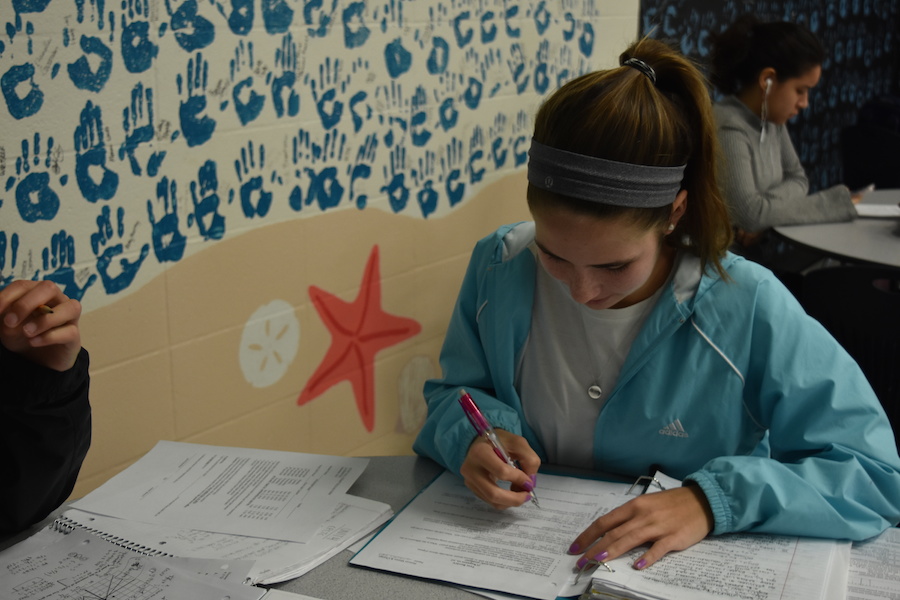One word can incite instant panic for high school student: finals. The realization that they need a 400 percent on that Chemistry final is game-changing.
This extreme anxiety is often the only source of motivation for a burnt-out student, resulting in intense study sessions weeks in advance. But the immense amount of stress, proves to be worth it, right?
This isn’t always the case, unfortunately. In fact, that long period of chaos and anxiety leading up to finals can prove futile when a student walks out of that dreaded final and realizes the harsh truth: they overstudied.
Any teacher would probably tell you that over-studying is a myth. After all, one can never be too prepared. But what about all of that wasted time? Time is a valuable resource, and time spent obsessing over one final takes away precious study time for another. According to a Pathfinder survey, 69.2 percent of polled students believe that over-studying for a final is entirely possible. They recognize that feeling of crippling regret after realizing that they spent a substantial amount of time studying unnecessary information.
Allow me to make one thing clear before I sound lazy: studying should absolutely be made a priority come finals season, but a certain amount of time must be devoted to giving yourself proper mental rest. It’s that kind of anxiety-ridden studying that consumes your entire life that I have an issue with.
Being overly stressed for a test is helpful to no one, making the process of studying actually detrimental to academic achievement. Panicking the entire week before will do nothing except cloud a student’s thought process, causing their mind to be completely scrambled when they need it the most. Keeping a clear head throughout finals period is an absolute necessity in order to perform well on such immensely stressful exams.
When the time arrives to buckle down and focus, resources tend to be limited for even the most diligent of students. It certainly doesn’t help that study guides just aren’t what they used to be. Back in the glory days of middle school, every bit of information on the test was clearly laid out in advance, so students knew exactly what to study. These days, in the cold, grown-up world of high school, study guides often only contain basic concepts, resulting in students having no choice but to review every single scrap of paper in their possession, even if the content on them has nothing to do with the test.
This is simply time wasted, those valuable minutes ticking away as you go over and over unrelated material. In this sense, it is merely over-studying due to lack of organization. Without clear direction of what to review for the final, the only option is to study everything, including material that is not part of the curriculum, material that will provide students with no benefit throughout their academic careers.
Even if everything is perfectly laid out, studying consumes every little bit of free time, leaving little room for actual motivation. If students can’t give themselves a break, especially through extracurricular activities, their work ethic will plummet. Rewards in the form of time off are a necessity in order to stay motivated. A sort of “what’s the point?” attitude will emerge as students slowly burn themselves out on academics, restrained from doing activities that bring them peace of mind. A balance of work and free time is crucial, but the latter is quickly becoming overshadowed by unrealistic expectations.
Though this problem is caused by no single party, it is the responsibility of all to ensure studying for finals should be healthy instead of detrimental. Clarity of the content on the final is a necessity, and students need to divide their time appropriately between subjects without too much emphasis on one test in particular. Far from a simple excuse to promote laziness, over-studying is a problem that will continue to chip away at that desperately-needed A at the end of the semester.



